

Ze Ji, Cardiff University, jiz1@cardiff.ac.uk
Jing Wu, Cardiff University, wuj11@cardiff.ac.uk
Research in Artificial Intelligence for Robot Autonomy has improved tremendously over the last decade. In recent years, attentions have been focused on tasks with increased task and environment complexities. Two main areas are considered highly challenging, namely robot perception and robot learning. It is envisaged that an enhanced robot cognitive capability can be achieved through deploying advanced multi-modal perceptual capabilities, and continuous self-learning to understand the environment, predict situations via machine/deep learning, and support humans for real-world problems.
This session is intended to provide a forum for colleagues in the robotics and AI communities to share their experiences and discuss the recent advances in the following fields of autonomy to robots and unmanned systems, providing capabilities of advanced situation awareness, multi-modal sensing, robot active learning, localisation and mapping, optimal path planning, human robot collaboration, robot grasping & manipulation and so on.
This invited session will collect papers of the following subjects, but not limited to:
● Artificial Intelligence, including machine learning and deep learning,
● Robot learning for enhanced skills
● Robot perception, including robot vision, SfM, tactile sensing etc
● Mobile robot autonomous navigation, including SLAM, path planning, and task allocation
● Intelligent Robots for Digital manufacturing, including Digital Twin and Cyber-Physical Systems
● Data-driven or intelligent measurement and metrology technologies
● Smart robotics-enabled production, including case studies
● Human pose tracking and estimation
● Human robot/machine interaction and collaboration
● Multi-modal human robot/machine interfaces
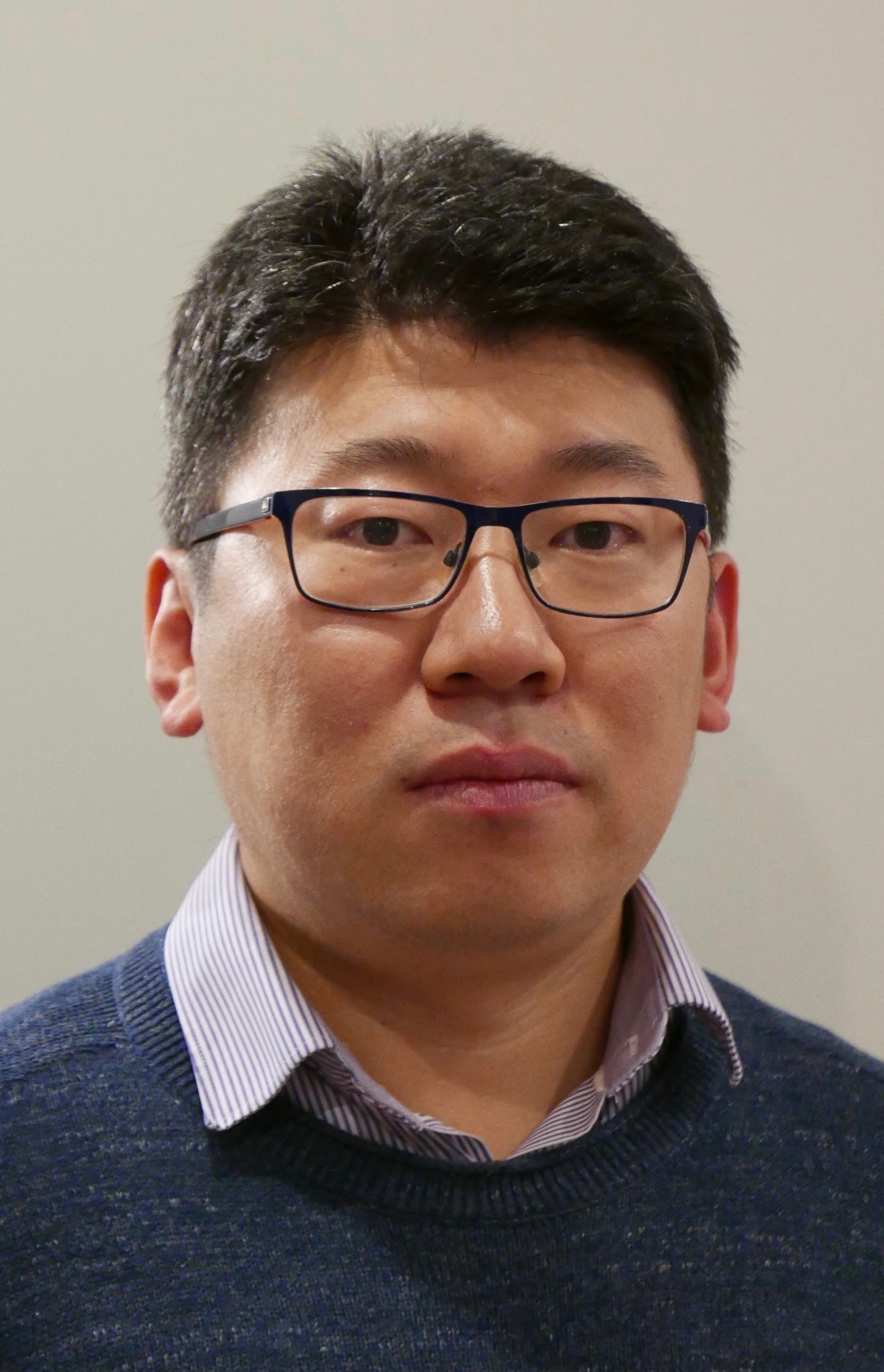
Dr Ze Ji is a senior lecturer of Robotics and Autonomous Systems at Cardiff School of Engineering, Cardiff University. He received his PhD (2007) from Cardiff University, MSc in computer science from the University of Birmingham and BEng in Electronics Engineering from Jilin University respectively. He has broad experience obtained from both industry and academia in robotics, including indoor mobile robots, humanoid robots, and outdoor unmanned autonomous surface vehicles. In particular, he has been focusing on research areas of robot navigation, simultaneous localisation and mapping (SLAM), robot vision, in-situ monitoring for smart manufacturing, fault diagnosis and self-validating sensors, acoustic and tactile sensing, machine learning, swarm intelligence, and robot task planning.
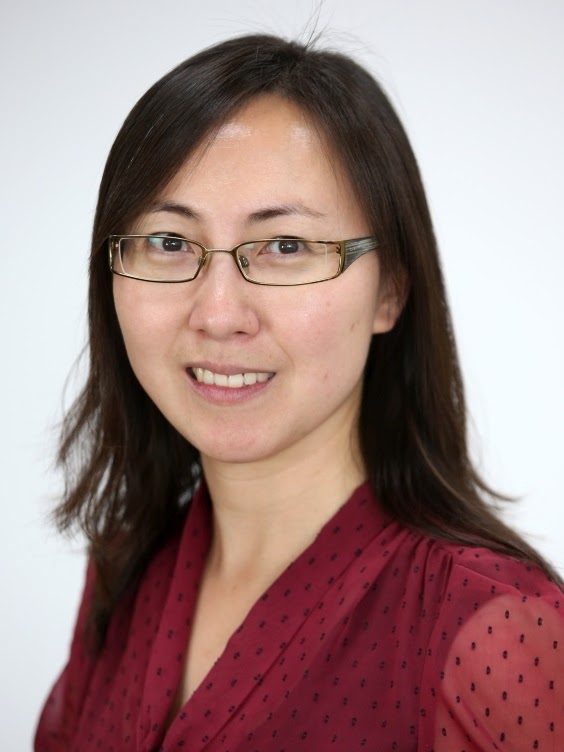
Dr Jing Wu a lecturer in the School of Computer Science and Informatics at Cardiff University. She received PhD in Computer Science from the University of York, and received MSc and BSc in Computer Science from Nanjing University, China. She has broad interests and research experience in computer vision. Her main research interests lie in the area of 3D reconstruction, visual understanding, and their applications. To reconstruct 3D information from 2D is a low-level vision problem, and assists many mid- and high-level vision tasks, such as segmentation, tracking, recognition, etc. Currently, she has particular interests in visual SLAM, micro-scale 3D surface imaging, and 3D face modelling and processing. The chairs are members of the Research Centre for Artificial Intelligence, Robotics and Human-Machine Systems (IROHMS) at Cardiff Univrsity.
Carsten Lecon, Aalen University (Germany)
Virtual 3D Learning Environments are not only used for the visualization of complex learning matters, but get increasing importance in learning environments (currently, accelerated by the Corona pandemic). Students for example act as avatars in artificially generated worlds, in which they learn, develop, and present simultaneously. Full immersion is possible by so called head mounted displays, for example the HTC Vive or the Oculus Rift. Nowadays, these are less expensive, so that many users can use this technique. Furthermore, Augmented Reality (AR) und Mixed Reality (MR) applications become more and more important in industrial application - and also in learning environments.
Topics are included but not limited to:
● Virtual 3D Environments for collaborative learning
● AR and VR Learning Settings for Higher Education and School Education
● Teaching VR/ AR/ MR techniques in Higher Education
● Didactic and pedagogical aspects when designing VR/ AR/ MR applications
● Evaluation of AR/ VR / MR applications
● Kinetosis in VR environments

Prof. Dr. Carsten Lecon
● Study of computer science
(Technical University Braunschweig, Germany)
● Software Quality Assurance
(Siemens AG, Braunschweig)
● Database systems, Media archives
(University Luebeck, Germany)
● Virtual University of Applied Sciences
(FH Luebeck, Germany)
● Since 04/2004 Professor for media computer science
(Aalen University for Applied Sciences, Germany)
○ Teaching: Foundations of digital media, VR/AR technologies, audiovisual media, game programming
○ Research: E-/VR-Learning, kinetosis in VR environment, live motion capture
Li ZHENG, Tsinghua University, China zhengli@tsinghua.edu.cn
Chao LI, Tsinghua University, China li-chao@tsinghua.edu.cn
Computer Programming in education is an open session in ICCSE 2021 and the theme is From kindergarten to University. We are soliciting submissions for the following thematic tracks (but not limited to):
● Case Study Analysis (K-12, Higher Education, Vocational Education)
● Curriculum Standards (Frameworks, Models, Standards)
● Educational Assessments (Platform, Tools)
● Online and Offline Hybrid Teaching Mode (Theory, Practice)
● Flipped Classroom (Theory, Practice)
It is an ideal forum for sharing ideas, learning about developments and interacting with colleagues in these fields.
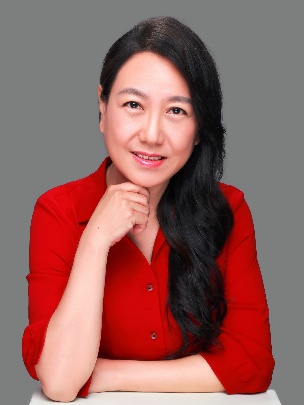
Dr. Li Zheng is a Professor in School of Computer Science and Technology at Tsinghua University. She is a committee member of Higher Education Guidance Committee of Ministry of Education China, and Vice Chairman of Association of Computing Education in Chinese Universities. Her research interests lie mainly in the areas of computer applications, computer education and educational information technology. As editor-in-chief, she has published more than twenty textbooks, one national quality textbook-C++ Language Programming and four quality courses of Beijing. She presided a number of projects of National High Technology Research and Development Program 863,as well as projects of national support plans and projects of the Chinese Ministry of Education.
As project lead, she presided over drafting GB/T36642-2018 "Information Technology, Learning, Education and Training Online Courses" etc, nine national standards for Education Informatization. As co-editor, she drafted the International standard: ISO/IEC 19788-1:2011. She also presided over the R&D project of Group standards for the National Coding Test Adolescents (T/CERACU/AFCEC/SIA/CNYPA 100), five group standards for the "Computer Core Curriculum Specification", and as the first drafter, drafted "T/CERACU/204-2020 Computer Core Curriculum Specification -Programming". She received many awards including the National Teaching Achievement Award, Beijing Teaching Achievement Award, Science and Technology Award by Chinese Ministry of Education, Beijing Science and Technology Award, Science and Technology Progress Award of Chinese Institute of Electronics, etc.
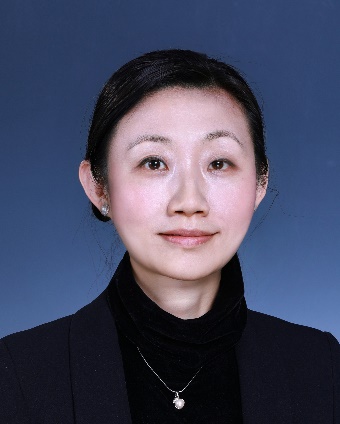
Dr. Chao LI is an Associate Professor of BNRist (Beijing National Research Center for Information Science and Technology), Tsinghua University, Beijing, P.R. China. She got the Ph. D degree from Department of Computer Science and Technology, Tsinghua University in 2006 and worked in the area of data and knowledge engineering since then. LI’s research interests also include Big Data and Machine Intelligence related applications in education, health and digital archives. Her recent courses include C++ Programming, Distributed Data System in the classroom and corresponding MOOCs’ buildings, operation, standardization, evaluation and analysis to help students achieve more efficient learning.
Binyue CUI, Hebei University of Economics & Business, binyuec@heuet.edu.cn
Wei ZHOU, Beijing Jiaotong University, wzhou@bjtu.edu.cn
Yanting TONG, Wuhan University of Technology
The digital economy has increased dramatically during the past several years. The surge of ICT (Information Communication Technology) makes it available for us to integrate new advanced information technologies into our society and local culture. Meanwhile, ICT drives the changes in enterprises’ business models and even business ecosystems by leveraging digital technologies and competences. With ICT, enterprises access to their customers by new information technologies, and provide customers with personalized services based on big data analysis.
Digital society drives production and life more effectively and more conveniently than ever. E-Government and e-Commerce simplify the way people work and live; The implementation of ICT based systems collect, store, access, manage and disseminate the environmental data and information; People enjoy roaming in museums or virtual heritages online at where ever they were; New information technologies facilitate the data management and remote diagnoses in health ware fields, etc.
This session will focuse on how to take the best use of ICT to improve our society in certain areas. We welcome contributions of the technical as well as the non-technical aspects of digital society and digital transformation in enterprises or organizaitons.
This invited session will collect papers of the following subjects, but not limited to:
● e-Government / e-Governance,
● e-Business / e-Commerce,
● e- Environment
● e-Culture an e-Health
● ICT based information systems
● Digital transformation
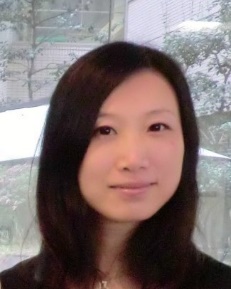
Dr. Binyue CUI is an Associate Professor, Dept. of Information Management, School of Management Science and Engineering, Hebei University of Economics and Business. She graduated from School of Information Science, Nagoya University, Japan, and received her Ph.D degree (information Science) in 2012. As a post-doc researcher, she worked at Nagoya University in Japan from 2012-2013. She has published over 30 academic papers in journals and international conference proceedings and served as editor, reviewer of several academic journals. She presided and participated many research projects. Her research interests lie mainly on Data Science and the applications in Enterprise Digital Transformation, Education, e-Culture, etc.
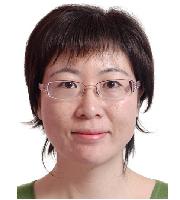
Dr. Wei ZHOU, Senior Researcher of Computer and Information Technology, Beijing Jiaotong University. She received the B.Eng. degree from Hebei University of Science and Technology, the M.Eng. degree from Beijing University of Technology, and the Ph.D. degree from Nagoya University (Japan). As visiting scholar, she visited Lawrence Berkeley National Laboratory from 2018-2019. Her main research interests include Data Science and System Engineer, Education Technology, Information Services. She has published many papers of international conference, journals, and served on some editorial boards.
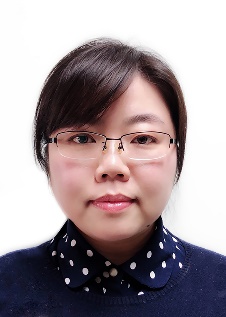
Dr. Yanting TONG, is an Associate Professor, Dept. Visual Communication Design, School of Art and Design, Wuhan University of Technology. Her researches focus on visual communication, intangible heritages protection by digital methods, contemporary exploration to the illustration of Chinese traditional festival etc. She Presided and participated three key research projects of Hubei provincial social science foundation, and participated a young scholars supporting project of National Social Science Foundation. She also presided three independent innovation projects of Wuhan University of Technology, and published more than ten academic papers, obtained four Design Patents. She received the Second Prize of Hubei Province University Teaching Achievement Awards (ranked second) . As supervising teacher, she instructed students to take part in many domestic competitions of professional design, and her teams won many awards.
Hiroki TAKADA, University of Fukui, takada@u-fukui.ac.jp
In today’s world, where digital images and videos are flooding our homes, academically examing the safety of viewing them is necessary. In this section, the new development of biosignals and biosignal processing are introduced and utilized in this field and the suroundings. In connection with 5G technology, biosignals and their utilization have been attracting attention. The application of artificial intelligence, which has made remarkable progress in recent years, to this field will also be discussed.
This invited session will collect papers of the following subjects, but not limited to:
● Machine Learning/AI
● Computer–Human Interaction
● Control and Communication
● Deep Learning
● Mechatronics and Robotics
● Visualization of Big Data
● Techniques, Models, and Algorithms.
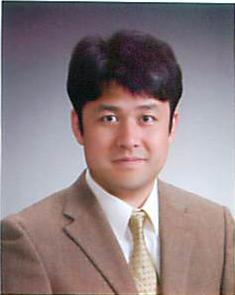
Dr. Hiroki TAKADA, is a tenured Professor in the Department of Human and Artificial Intelligent Systems, the Graduate School of Engineering, University of Fukui. He is also the Co-Director of the Nonlinear Science Lab. His research is centered on the nonlinear analysis of time sequences. In his research, mathematical models have been obtained from the data sequences in Economics, Meteorology, and Erectrophysiology based on the stochastic process theory. He also received the Organization Contribution Award from the International Conference of Computer Science and Education (ICCSE) in 2020. Dr. Takada also serves as an editor in Environmental Health and Preventive Medicine and an editor-in-chief of Forma. He is a member of IEEE, Physical Society of Japan, and other organizations.
Haidong Shao, Hunan University, China, hdshao@hnu.edu.cn
Haiyang Pan, Anhui University of Technology, China, pansea@sina.cn
Zhiyi He, Guangzhou University, China, hezhiyihnu@126.com
Nowadays, industrial automation system plays an important role in modern industry. With the rapid development of science and technology, modern industrial automation system is more and more precise, integrated and complicated. With high demands on reliability, safety, and availability in industrial automation systems, fault diagnosis and intelligent maintenance have been important research topics in recent years. Modern automation industries enable the availability of a large amount of historical data. As a result, data-driven modeling, diagnosis, and prognosis have attracted a lot of attention. This session will focus on how to improve the safety and efficiency of industrial automation systems.
Topics are included but not limited to:
● Effective information extraction and fusion of multi-source signals
● Online monitoring, intelligent diagnosis and prediction
● Health Condition Evaluation
● Closed-loop control
● Intelligent maintenance
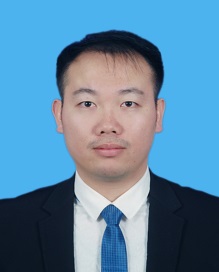
Dr. Haidong Shao is an Assistant Professor in the College of Mechanical and Vehicle Engineering, Hunan University, Changsha, China. He received the B.S. degree in Electrical Engineering and Automation and the Ph.D. degree in Vehicle Operation Engineering from School of Aeronautics, Northwestern Polytechnical University, Xi’an, China, in 2013 and 2018, respectively. From 2019 to 2021, he was a Postdoctoral Fellow in Luleå University of Technology, Luleå, Sweden. Thus far, he has published more than 30+ SCI-indexed papers, including 10 ESI Highly Cited Papers, 1 ESI Hot Paper and 1 IOP Publishing Highly Cited Paper. He served as Guest Editor of Measurement Science and Technology, Youth Editorial Board Member of International Journal of Hydromechatronics. He has led various prestigious international conferences, including the Program Chair of the 2021 IEEE ICCSE, the Program Committees of the 2021 ICMVIT and 2021 CIMIA, the Session Chairs of the IEEE Global Rel&PHM-2020 Shanghai and the 2020 ICSMD. He has hosted one project funded by the National Natural Science Foundation of China (NSFC), one sub-project funded by the National Key Research and Development Program of China, and one project funded by the Natural Science Foundation of Hunan Province. His current research interests include fault diagnosis, intelligent prognosis, maintenance decision, and information fusion.
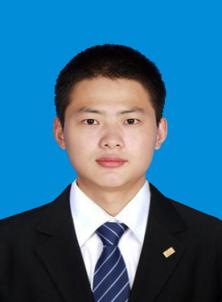
Dr. Haiyang Pan is an Assistant Professor in Mechanical Engineering Department, Anhui University of Technology, Ma’anshan, China. He received Ph.D. degree in Mechanical Engineering from Hunan University, Changsha, China, in 2019. He is the Guest Editor of Shock and Vibration, Committee Member of Viser Mechanical Engineering Expert Database, and Senior Member of China Society of Mechanical Engineering. Meanwhile, he is also the reviewer of IEEE Transactions on Industrial Electronics, Mechanical Systems and Signal Processing, ISA Transactions, Advanced Engineering Informatics and Mechanism and Machine Theory. He has won many National Natural Science Foundation of China, Natural Science Foundation of Anhui Province and Key Program of Natural Science Research of Higher Education in Anhui Province. He has published more than 60 SCI/EI papers (3 papers are ESI Highly Cited Papers), with a total of more than 600 citations, and H-index is 12. He participated in writing a monograph on machine learning and fault diagnosis, and won the second prize of Anhui Science and Technology Award (Natural Science). His research interests include machinery health monitoring, fault diagnosis, signal processing and pattern recognition.
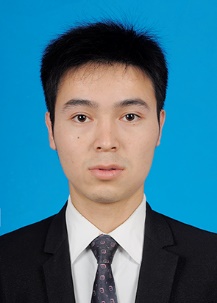
Dr. Zhiyi He is an Associate Professor in the School of Mechanical and Electrical Engineering, Guangzhou University, Guangzhou, China. He received the M.S. degree in Mechanical Engineering and the Ph.D. degree in Mechanical Engineering from Hunan University, Changsha, China, in 2016 and 2020, respectively. As the first author, he has published 12 SCI-indexed academic papers in international journals (including one ESI Highly Cited Paper), such as IEEE Transactions on Industrial Electronics, Mechanical Systems and Signal Processing, KnowledgeBased Systems and Advanced Engineering Informatics. He has also served as a reviewer of several top-ranked academic journals. He has participated in a number of projects funded by the National Natural Science Foundation of China (NSFC), and sub-projects funded by the National Key Research and Development Program of China. His main research interests are machine learning, equipment condition monitoring, and intelligent operation and maintenance.
Fengxia Li, School of Computer Science and Technology, Beijing Institute of Technology, lfx_lfx@bit.edu.cn
Jingfeng Xue, School of Computer Science and Technology, Beijing Institute of Technology, xuejf@bit.edu.cn
Yue Yu, School of Computer Science and Technology, Beijing Institute of Technology, yuyue@bit.edu.cn
MOOC (Massive Open Online Courses) /SPOC (Small Private Online Courses) gets many new points and research achievements for online teaching in recent years. These developments bring the challenges for the online experiment. Virtual simulation technologies which includes VR/AR and computer simulation promote online teaching resource construction. The promotion could improve the quality of the online courses. This invited session is intended to provide a forum for colleagues to share their experiences and new research achievements in online experiment construction and the online courses improvement.
Topics are included but not limited to:
● Virtual Simulation Technology for Online Experiments.
● Virtual experiment for online teaching.
● Online teaching resource construction.
● Mixed Teaching Mode based on MOOC/SPOC.
● Analysis of Online Learning Behavior.
● Intelligent Tutoring Systems for MOOC/SPOC.
● Online Teaching Environment and Supporting Technology.
● Virtual experiment for online teaching.
● Online teaching resource construction.
● Mixed Teaching Mode based on MOOC/SPOC.
● Analysis of Online Learning Behavior.
● Intelligent Tutoring Systems for MOOC/SPOC.
● Online Teaching Environment and Supporting Technology.
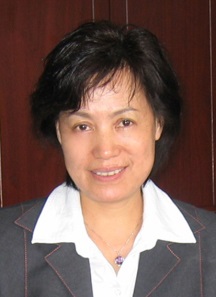
Fengxia Li is a professor in School of Computer Science and Technology at Beijing Institute of Technology. She is the Beijing Famous teacher, the chief of the National Virtual Simulation Experiment Teaching Center. She is in charge of College Computer MOOC and C Programing MOOC with more than 1,600,000 students. Her research interest is computer simulation and computer education. She received many awards including the National Teaching Achievement Award of China, Beijing Teaching Achievement Award, etc.
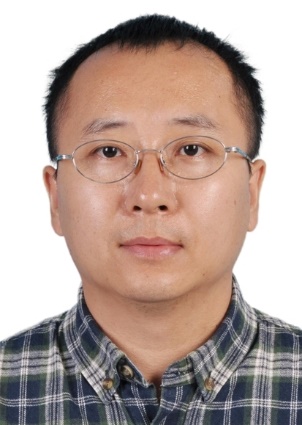
Dr. Jingfeng Xue is a professor in School of Computer Science and Technology at Beijing Institute of Technology. He received a PhD in computer science and technology from Beijing Institute of Technology in 2003. He is a committee member of Higher Education Guidance Committee of Ministry of Education China. His research interest is computer network and software engineering.
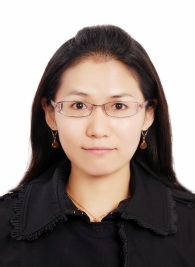
Dr. Yue Yu is an associate professor in Beijing Institute of Technology. She received an MSc degree in automatic control from Beihang University, Beijing, China, in 2010 and a PhD from Ecole centrale de Lille, Lille, France, in 2013. Her fields of interests are virtual reality, computer simulation, and computer education. She is in charge of the National Natural Science Foundation of China. She received many awards including the National Teaching Achievement Award of China, Beijing Teaching Achievement Award, etc.